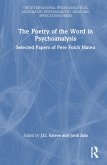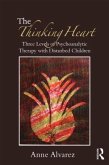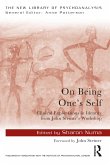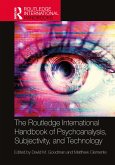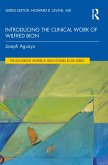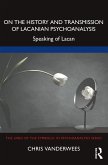The Poetry of the Word in Psychoanalysis presents selected key papers by leading Spanish psychoanalyst Pere Folch Mateu.
The pieces chosen for this book address clinical, psychopathological, technical and theoretical issues approached in Folch Mateu's unique style, providing an introduction to his impressive output. Folch Mateu integrates a wide range of psychoanalytic sources - Freud, Klein and Bion, and French psychoanalysis - in approaching topics like the psychoanalytic process, obsessive modes of control, the pathology of the negative and intellectual inhibition. The author's interest in exploring the interactions between the analyst and the patient in minute detail through the course of the psychoanalytic process is a key theme that emerges throughout, as is his devotion to the intersections between music, literature and psychoanalysis.
The Poetry of the Word in Psychoanalysis will be of great interest to psychoanalysts and psychotherapists in practice andin training, particularly those wishing to explore the boundaries of psychoanalysis and the integration of different psychoanalytic approaches.
The pieces chosen for this book address clinical, psychopathological, technical and theoretical issues approached in Folch Mateu's unique style, providing an introduction to his impressive output. Folch Mateu integrates a wide range of psychoanalytic sources - Freud, Klein and Bion, and French psychoanalysis - in approaching topics like the psychoanalytic process, obsessive modes of control, the pathology of the negative and intellectual inhibition. The author's interest in exploring the interactions between the analyst and the patient in minute detail through the course of the psychoanalytic process is a key theme that emerges throughout, as is his devotion to the intersections between music, literature and psychoanalysis.
The Poetry of the Word in Psychoanalysis will be of great interest to psychoanalysts and psychotherapists in practice andin training, particularly those wishing to explore the boundaries of psychoanalysis and the integration of different psychoanalytic approaches.
"Pere Folch was a passionate teacher of psychoanalysis and its applications to art, architecture, music, poetry, theatre and most of all psychotherapy. This volume attests to his vitality and devotion to his beliefs, both scientific and political and to the Catalan language. Most of all he was a compassionate listener who gave priority to the needs of his patients."
John Steiner is a training analyst of the British Psychoanalytical Society, formerly a psychiatrist at the Maudsley Hospital and a psychotherapist at the Tavistock Clinic. He is the author of prominent works such as of Psychic Retreats, (1993), Seeing and Being Seen, (2011), and Illusion, Disillusion and Irony in Psychoanalysis, (2020).
"This collection of papers illustrate Pere Folch's crystalline intelligence, his limpet-like adherence to the phenomenology of the consulting room, and his sensitive and thoughtful considerations of the technical problems faced by the practicing analyst. The anglophone world is fortunate to have such an extensive collection of his thought now available to it. We are all indebted to the editors, translator and sponsors of this effort."
Robert Caper, MD,Psychoanalyst in private practice, Former member of the editorial boards of the International Journal of Psychoanalysis and the Journal of the American Psychoanalytic Association.
John Steiner is a training analyst of the British Psychoanalytical Society, formerly a psychiatrist at the Maudsley Hospital and a psychotherapist at the Tavistock Clinic. He is the author of prominent works such as of Psychic Retreats, (1993), Seeing and Being Seen, (2011), and Illusion, Disillusion and Irony in Psychoanalysis, (2020).
"This collection of papers illustrate Pere Folch's crystalline intelligence, his limpet-like adherence to the phenomenology of the consulting room, and his sensitive and thoughtful considerations of the technical problems faced by the practicing analyst. The anglophone world is fortunate to have such an extensive collection of his thought now available to it. We are all indebted to the editors, translator and sponsors of this effort."
Robert Caper, MD,Psychoanalyst in private practice, Former member of the editorial boards of the International Journal of Psychoanalysis and the Journal of the American Psychoanalytic Association.


